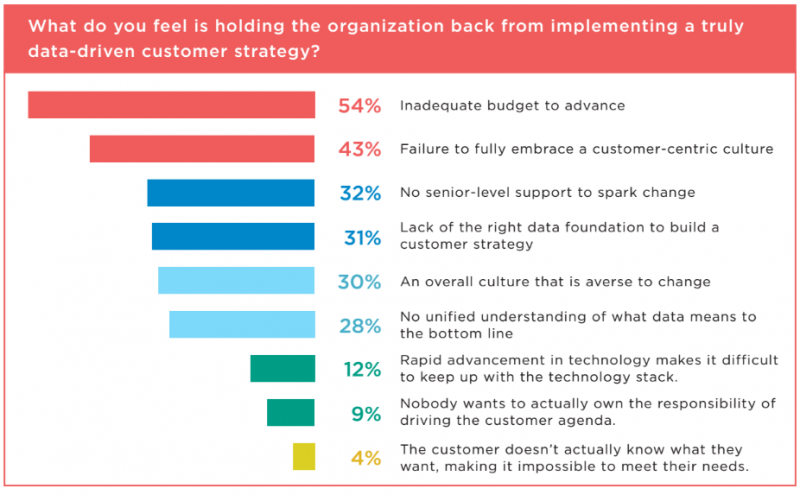Marketers Face Hurdles in Data-Driven Marketing Strategies (Report)
Inadequate tools, small budgets and lack of support from leadership are some of the challenges marketers face
All across the internet, from social networks to online retailers, consumer data is being readily collected. Given the multitude of touch points between brands and customers, it’s important for businesses to leverage this data to provide a true omnichannel approach. A report from the CMO Council examines the struggle for omnichannel integration.
Social media has fostered a sense of urgency for its users and for marketers, resulting in the desire for real-time experiences. According to the CMO Council report, only 7 percent of companies are able to deliver real-time, in both the digital and physical worlds. 20 percent report struggling to achieve their real-time goals, and 21 percent report having only just begun to explore real-time responses.

There are many hurdles in the way for those beginning their new strategies: More than one-half of the survey respondents reported inadequate budgets, while others cited failure to embrace a customer-centric culture, a lack of senior-level support and insufficient data to develop this kind of strategy. Respondents also cited a lack of understanding from other teams as to the power of unified data when it comes to the bottom line.

When asked how connected their systems were—a good measure of omnichannel success—the data wasn’t promising. One-quarter of the marketers surveyed said there was no connection between systems, 15 percent reported a disconnect between new systems and legacy data/infrastructure and less than 5 percent said that their systems were integrated and that data transfers easily between all points.

Marketers blame inadequate tools, inadequate funds, resistance to data-driven solutions and a myriad other problems for failures to implement omnichannel solutions for customers. Disconnection between departments creates needless barriers for those hoping to develop a strategy that meets the customers where they are, and on their schedule.
Dale Renner, CEO of RedPoint Global, noted in a statement:
To consistently meet customer expectations, brands must be relevant, and to sustain profitable revenue growth, they must be more relevant than competitors. This can only be achieved by having the deepest understanding of a customer, making decisions at the cadence of each customer and then intelligently orchestrating engagement across any touchpoint in the enterprise.
For solutions to these problems, cultural or technological, download the full report.







